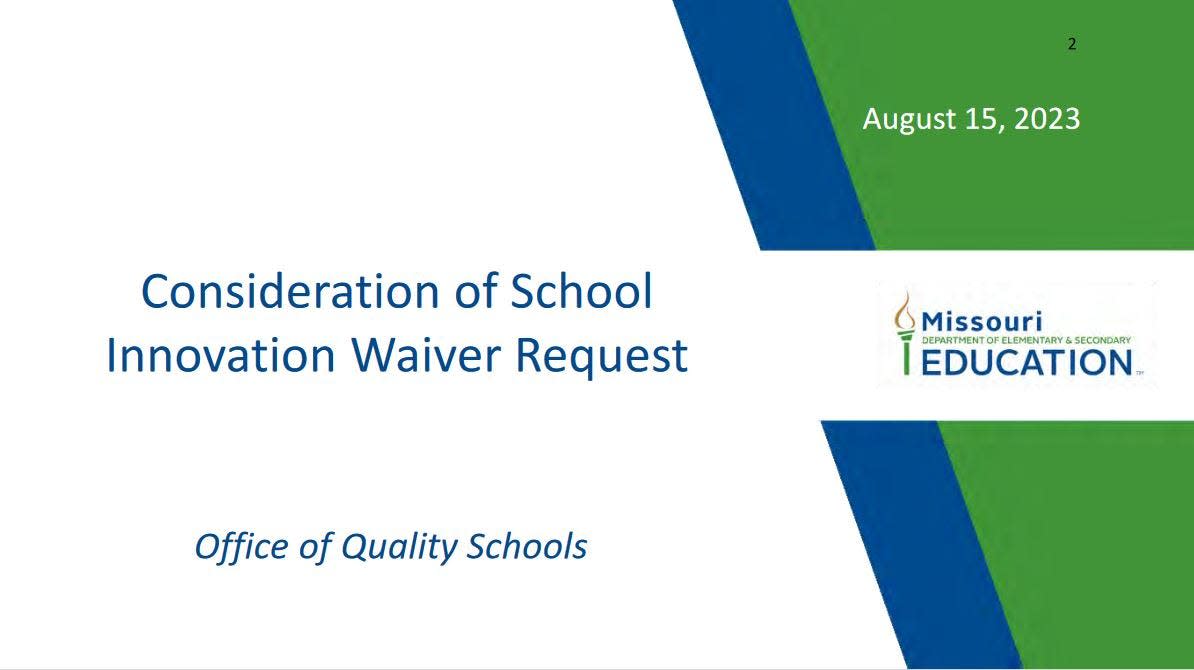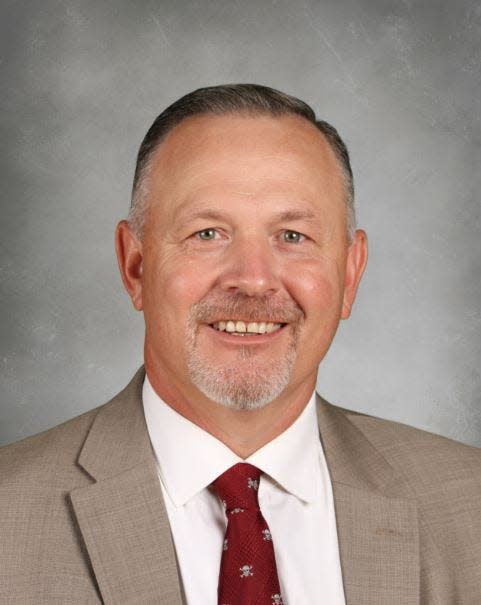Why 20 Missouri districts will use alternative tests to measure student achievement

Twenty school districts in Missouri have been granted a measure of freedom to explore alternative ways to track student achievement and progress over time.
For up to three years, the 20 districts — which include Branson, Lebanon, Neosho, Ozark and Shell Knob in this part of the state — will be able to develop and use alternative achievement tests to satisfy state accreditation requirements.
"All the districts that are involved with this have formative assessments, meaning we assess kids at the beginning of the year, at the middle of the year and at the end of the year with our own internal assessments — not specifically created by us but we actually partner with assessment systems that are used by schools across the nation," said Branson Superintendent Brad Swofford.
"We would like to use those assessments ... to be able to measure our kids and use those in our accountability system that we give to the state."
In mid-August, the Missouri Board of Education voted to grant the "innovation waiver" to 20 districts. They are the inaugural cohort in what has been called the Success-Ready Student Network.

The work they document under the waiver has been hailed as a critical first step toward potentially reimagining and revamping how public schools in Missouri are measured and held accountable.
They aim to show that there is a more effective way to measure how much students learn during a school year and from one year to the next.
Lisa Sireno, assistant commissioner for the Missouri Department of Elementary and Secondary Education's Office of Quality Schools, said the implementation and impact of the waivers will be closely monitored.
There will be regular reports to the state board starting with an update in January.
At the Aug. 8 state board meeting, Misouri Commissioner of Education Margie Vandeven added: "There will be an enormous amount of public reporting for parents — this isn't just an experiment — on how they are doing on their assessments."
She added: "We have a number of safeguards in place."
Aim is to better track student progress throughout the year
Despite the waiver, the 20 districts will still be required to administer state-mandated exams, including annual tests in reading and math in grades 3-8 and at the end of specific high school courses. Those results will be still be publicly reported, but won't count against the districts, which will be judged instead on progress measured by the alternative tests.
If the waiver produces positive results, the state may expand the number of participating districts in the network and help those districts seek a federal waiver to exempt them from giving the state-mandated exams at all.

Swofford said the hope is to gain test results that are more timely and can be put into action.
The existing, state-mandated exams are "a one-time shot of what our students do in a year and those are lagging indicators," Swofford said. "Sometimes we don't get those (results) until the next school year. We want to be more intentional and have up-to-date indicators."
The alternative tests Branson and other districts will use — which are given at the beginning, middle and end of the year — will allow teachers to better track and respond to the academic needs of each individual student in a timely manner, he said, adjusting lesson plans as needed. "It's more of a growth model so we get accurate, current data of where our kids are at and how we can move forward to help students progress."
The state exams place students into four categories — "below basic" and "basic" typically mean a student is one or more years behind grade level, "proficient" means they are at grade level and "advanced" means they are ahead of where they are expected to be at that point.
Swofford said the alternative tests used by the waiver districts will still show how students perform in comparison to grade-level expectations, but will also allow districts to better measure how much progress they are making over time with each individual student.
He said the change increases students' awareness of how they are doing throughout the school year and gives the district credit for the progress they're making.
"This gives students hope. They see 'OK, I am having success,'" he said. "We know kids come to us from all different aspects, all different points of success and learning and this gives us a better opportunity to meet kids where they are."
State board member Peter Herschend said the ultimate test of whether or not the waivers are successful is whether or not they result in stronger reading and math skills for students.
He described this as a "significant change that ought to have impact."
"I'm interested in results," Herschend said, adding: "At the end of the day, the only thing that counts I think is if ... under the system as proposed here, we should then have better results academically for the students."
More: First look at Missouri student scores for last year 'depressing,' state board member says
Board member Mary Schrag said the Teacher Recruitment and Retention Blue Ribbon Commission that she is part of heard presentations this summer about how similar changes in other states showed positive results.
"Ongoing, continuous measurements really do allow for the in-the-classroom teachers to make modifications," she said.
Schrag said reporting the results multiple times a year increases transparency for parents and gives students more details about where they are academically.
"When the kids actually feel like they have some control, that they understand where they stand with their own progress, they get so much more vested."
Success-Ready Student Network
Five districts in southwest Missouri received the initial waiver.
The others include Affton, Center, Confluence Academy, Fayette, Lee's Summit, Lewis County, Liberty, Lindbergh, Lonedell, Mehlville, Parkway, Pattonville, Raymore-Peculiar, Ritenour, and Ste. Genevieve.
Together, the 20 districts have 110,637 students, or 13% of the state's public school enrollment and 27% of students qualify for free or reduced price school meals, a national measure of poverty.
Claudette Riley covers education for the News-Leader. Email tips and story ideas to criley@news-leader.com.
This article originally appeared on Springfield News-Leader: 20 Missouri school districts to use alternative to state tests
